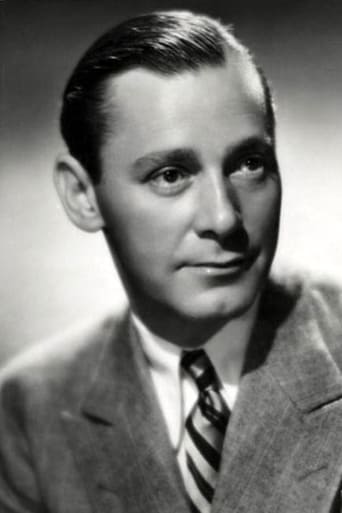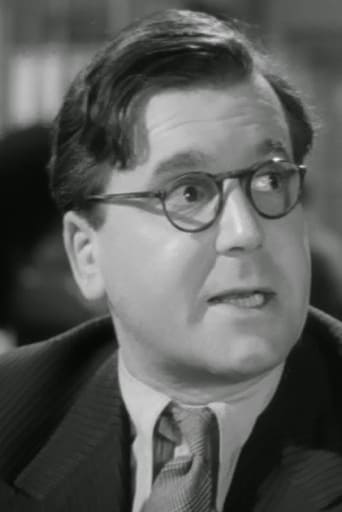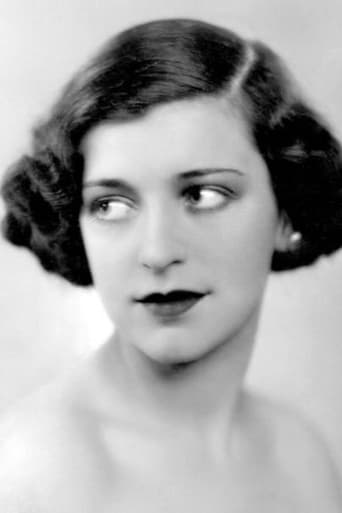Moustroll
Good movie but grossly overrated
Brenda
The plot isn't so bad, but the pace of storytelling is too slow which makes people bored. Certain moments are so obvious and unnecessary for the main plot. I would've fast-forwarded those moments if it was an online streaming. The ending looks like implying a sequel, not sure if this movie will get one
Haven Kaycee
It is encouraging that the film ends so strongly.Otherwise, it wouldn't have been a particularly memorable film
kkonrad-29861
'Murder!' is much thrilling and better movie than its current (2018) score might imply, although bit meandering and uneven in pacing the story is still interesting and well though out. The opening scene where camera movies along the street and people open their windows to the noise is pure example of genius director at work. The courtroom scene and the one after that where the jury argues over the verdict is wonderfully suspenseful. With the jury scene Hitchcock also plays wonderful trick how people with different opinions and understandings are sometimes simply bullied to agree with the great majority without even listening their arguments. The middle part of the film where the main character tries to solve the murder, although offering some humorous moments might seem bit dull to some, but shortly before the great reveal, the film picks up the pace and thrills when the main character starts his cat and mouse game with the supposed killer. And then the thrilling ending.Definitely worthwhile early Hitchcock picture.
calvinnme
This is not your typical Hitchcock of later years as this is a straight up murder mystery. There is no elaborate plot. The police find Diana Baring, an actress in a troupe, in shock, covered in blood, and next to the body of her friend and next to the poker that killed her. All during her trial she says that she does not remember killing the woman but she is sure she did not drink the brandy in a glass nearby. Sir John Menier, who was on the jury that convicted her and an actor himself, is shaving and looking in the mirror after the trial when this one fact hits him. Why would she be so sure of not drinking the brandy but claim she could not remember if she did the killing? Was this the act of a guilty woman? Thus Sir John, played energetically and cleverly by Herbert Marshall, is out to find who did kill her. This is a well done scene in and of itself, as Marshall is shaving and we hear his thoughts in a voice-over. Remember, at the time, many films were still using title cards to change scenes! Sir John is going to need the help of the acting troupe to solve this case. Thus he gets some of the members to help him by promising them jobs in his production company, which is a huge step up for them, before asking them for his help in clearing Diana. The rest of the film plays out like a police procedural, and although the British never had a formal production code like there was in America, Hitchcock does remove the reference to homosexuality in the film versus the play upon which the film was based.I found the film rather slow paced, but the camera-work is interesting. When one couple in the theatre troupe gets the word that Sir John wants to see them, you see close ups of shoes being shined, stockings being put on, hair being combed, but they are all shots so close you only see the actions themselves. Prior to this you see the couple living in drab surroundings just to get an idea that life has been a struggle for them and that their child seems more like a lively nuisance than their pride and joy. There are close ups of unpaid bills on the mantle as their daughter clangs annoyingly on their piano. There is a rather surreal shot when they enter Sir John's office. The man's legs sink into Sir John's carpet so that his feet are swallowed up. This is never explained, so I am assuming it is just to show the elegance and awe the man ascribes to Sir John right down to the depth of his rug.There are odd experimental shots like this all through the film, and Herbert Marshall's presence absolutely carries the entire production on the acting side. The film suffers due to uneven and often muffled sound which was just a problem that the early talkies shared, along with having long-winded spells of being too talkie and no scoring unless something important happens and the score comes blasting out of nowhere. I'd recommend it just because it is early Hitchcock and so unlike anything he did past 1940.
wes-connors
On a noisy evening, beautiful British stage player Norah Baring (as Diana Baring) is found with the bludgeoned body of a rival actress and a bloody fireplace poker. After a short investigation, Ms. Baring is charged with murdering the other woman. However, the accused can't recall a thing she did, and nearly admits guilt on the witness stand. Actor, playwright, producer and juror Herbert Marshall (as John Menier) thinks Baring may not have committed the crime. Calling the defendant "pretty," Mr. Marshall sets out to prove the attractive young woman did not commit "Murder!" Obviously very well-versed, Marshall mentions Agatha Christie's "The Mousetrap" and quotes Shakespeare. "The play's the thing" (from "Hamlet"), he believes will help identify the real killer. Marshall decides to write a story about the murderer and engage suspects in the role...This early "talkie" is most notable for being directed by Alfred Hitchcock, eventually acclaimed as one of the 20th century's greatest filmmakers. After a nice (tracking) opening, Mr. Hitchcock gets a little cluttered and almost loses the fact that there is a murder victim somewhere near the bottom of the screen. However, this being Hitchcock, we do get a good look at tea and women's underwear. There is more experimentation here than in some of the master's other early films – which should interest the academic viewer. It's fun to see him developing skills. In one of the supporting roles, Esme Percy (as Handel Fane) stands out. He plays an actor who assumes both masculine and feminine roles into adulthood, due to a high-pitched voice. He's also seen on the flying trapeze in a circus act. Moreover, the character is apparently bisexual. That's versatility! ***** Murder! (7/31/30) Alfred Hitchcock ~ Herbert Marshall, Norah Baring, Esme Percy, Edward Chapman
Zbigniew_Krycsiwiki
Interesting early Hitchcock is a bit less stiff and mechanical than other films of this era, as well as its German-language version in its telling of a juror 's attempt to prove the innocence of a girl he helped to convict, after she had been caught red-handed at the scene of the crime.Seems to have a bit more fluidity to the scenes and more developed characters than the German version. But it also at times feels like several short stories (murder mystery, trial, love story) which really only kicks into high gear in its initial scenes and again at the climax.





